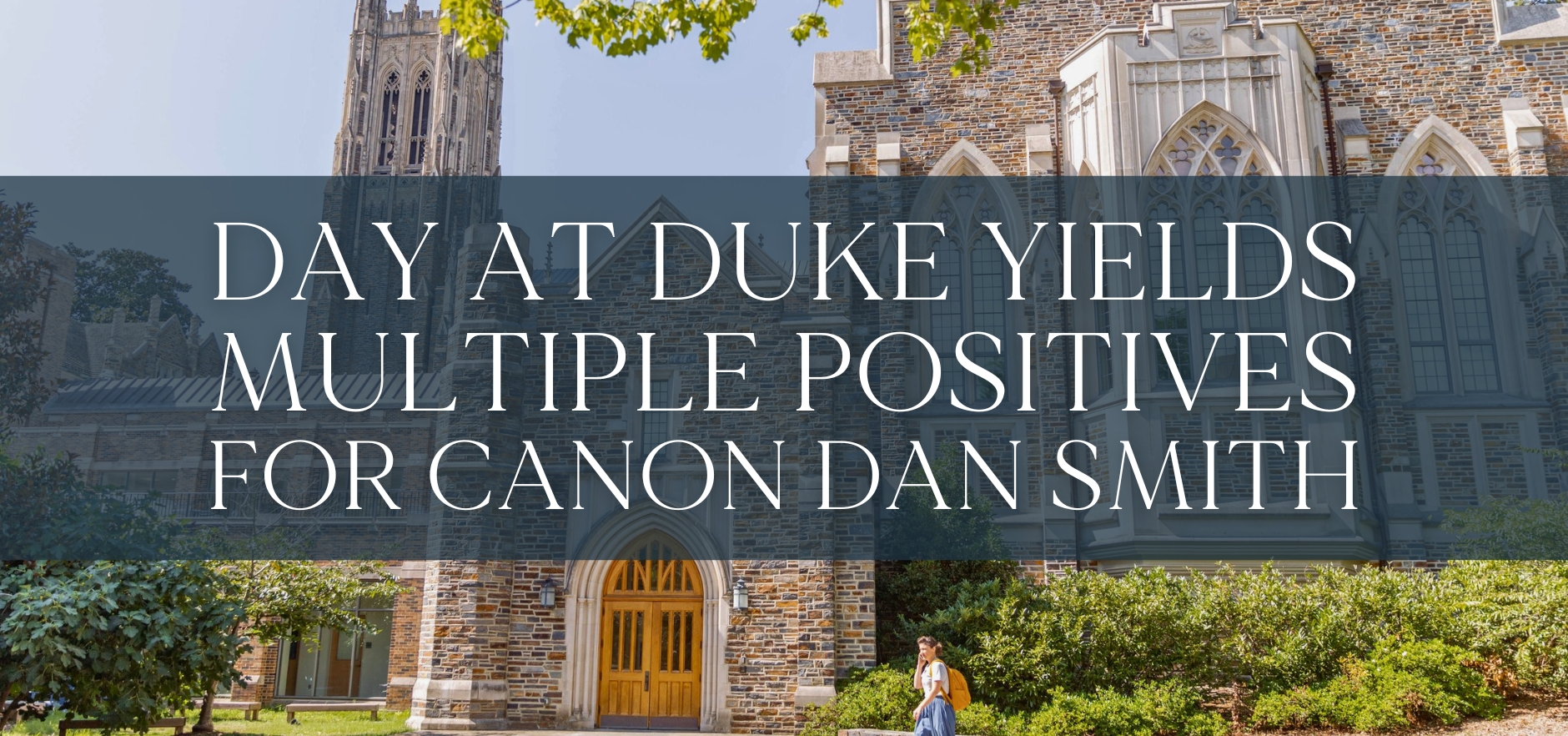
A recent teaching opportunity with the Anglican Episcopal House of Studies at Duke Divinity School in Durham, North Carolina, left the Rev. Canon Dr. Dan Smith with a favorable impression of both the seminary and the Anglican Episcopal community there. The Nov. 12 visit also confirmed a positive trend that Smith, canon to the ordinary for the Episcopal Diocese of Central Florida, has observed in his visits to seminaries over this past year: A majority of students are in their 20s and 30s.
“I’m seeing more and more younger people,” Smith said. “I do think that there’s a trend toward younger ages that is taking place in our seminaries, which I think is a good thing.”
Smith visited Duke at the request of the Rev. Timothy Kimbrough, director of the seminary’s Anglican Episcopal House, whom he met this summer at the 81st General Convention of The Episcopal Church in Louisville, Kentucky. “We got into a conversation about what they’re doing at Duke, the kind of program they’re running,” Smith said. “That’s the kind of program we’re interested in as an option for our folks going off to seminary, and we have a student there now who’s in his first year.
“Father Kimbrough and I talked at General Convention, kind of bounced around the idea of me coming up to Duke for a visit,” he explained. “Every Tuesday at 12:30 in the afternoon, they do what they call a colloquium, in which as many of the students as possible from the Anglican Episcopal House gather with a brown-bag lunch and usually have a presenter give 45-50 minutes of a presentation of some type. Then they go back to their afternoon classes or study, and later that day, the same group of people gathers every week for Eucharist.” A few months later, Kimbrough formally invited Smith to teach.
And the canon to the ordinary made the most out of his day at the seminary. “I spent some time in the morning just talking to students about their experience at Duke – the good and the bad, as we look at the school as an option for those from our diocese,” he said. “For the most part, everything I heard was pretty great.” After these conversations, he presented at the early afternoon colloquium, then celebrated the evening Eucharist, joining students afterward for a pizza dinner.
This was not Smith’s first stint of seminary teaching; years ago, he taught on congregational development in the doctoral program at Seabury-Western Theological Seminary and has also led a seminar at Yale Divinity School. For the Duke colloquium, he focused on leadership.
“Years ago, I did an academic study of congregations that have healed after significant clergy misconduct – what it was like for them to heal after that,” he said. “And then particularly, I studied the leadership and the qualities of leadership that a person exhibited who helped bring healing to those congregations. And in that, I discovered that the thing the ‘after pastor’ was most admired for in the healing process was their authenticity: that they were true to themselves.”
That finding moved Smith to discuss authenticity with the students, urging them to make use of some of their seminary time to discover their own leadership style. “Seminary is a time when they can explore different styles of leadership, but it’s important for them to discover what is theirs and to own it and then develop that,” he said. “We can learn parts of other leadership styles, but to a certain degree, when we use those styles, it’s like putting on a mask.
“And there is that real need for authenticity in what we do, what we preach, how we celebrate the Eucharist, how we pastor people, how we cast a vision for a congregation,” he said. “To do that, you’ve got to know who you are and pay attention to that. I’m convinced that everybody has a leadership style; they just have to learn what theirs is and then how to make best use of that, because every style has its positives, and every style has its potential concerns or weaknesses.
“We are either really good working on our own, being the out-front cheerleader, or we’re good at working as part of a team,” he continued. “Some of us are good at details, and some of us aren’t. There are all kinds of ways you can look at it, but it’s important for us to know who we are and what our leadership style is, because that also tells us who we put around us, who are the volunteers or employees we seek.”
Smith returned from Duke with a favorable impression of the day, the seminary and the downward trend in average student age. “The questions were good, and the work was good,” he said. “I was really impressed with the community they’ve built there in the Anglican Episcopal House at Duke. It’s harder to do that there than in some of our seminaries, because they don’t have on-campus housing like Virginia Theological Seminary or Nashotah House. They have to be very intentional about building community, and it seems to me they’ve done a great job.”
